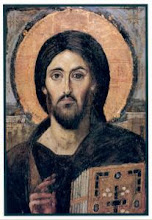Wednesday, January 8, 2014
Martin Luther King and the Struggle for Black Freedom
The 1960’s were a period of civil unrest and protest in the
United States. The Vietnam War raged and was most unpopular back home. Out of
that protest grew the hippie generation who believed in anything that liberated
peoples freedom. The 1960’s were a defining era in American history, especially
for the Black people who were still subtly oppressed not only by society but
also by Christianity as well.
During this era of unrest and upheaval in this country the
“White Christ” was an ever-present reality. Clergy, especially those in the
south were opposed to Martin Luther King’s civil rights movement. King was
hated and despised by many for comparing the Black race to the Children of God.
The Black race was unfortunately viewed as less than human by many White’s. King
did not understand how people, especially the White race claimed to follow the
Gospel of Jesus Christ, yet at the same time supported racism. King was deeply
distraught over this matter and led the charge for equality for Black people.
He believed that God was just as active and present in the lives of Blacks as
anyone else who claimed the Christian faith. While he persisted in his civil
rights movement, he received many ugly threats.
One evening after a particularly cruel threat, King got up
out of the bed and made a cup of coffee. He later wrote about this experience
saying, “With a cup of coffee sitting untouched before me I tried to think of a
way to move out of the picture without appearing a coward…I decided to take my
problem to God. With head in my hands, I bowed over the kitchen table and
prayed aloud…’I am here taking a stand for what I believe is right. But I am
afraid. The people are looking to me for leadership, and if I stand before them
without strength or courage, they too will falter. I am at the end of my
powers. I have nothing left. I’ve come to the point where I can’t face it
alone.’”
Suddenly King felt the presence of the Holy Spirit, as he
had never experienced before. An inner voice from deep within said, “Stand up
for righteousness. Stand up for truth; and God will be at your side forever.”
At that moment Martin Luther King never again doubted God’s presence in the
struggle for justice. He was undoubtedly reassured that God was with him, as
well as his cause for equality amongst the Black race in their battle against
White oppression and racism. God would sustain Black people!
King would go on to remind Blacks that God was with them in
their struggles. For King, God’s presence and importance was determined by
God’s liberating actions throughout history. In one sermon he preached, “Above
all, we must be reminded anew that God is at work in the universe. He is not
outside the world looking on with a sort of cold indifference. Here on all the
roads of life he is striving in our striving. Like an ever-loving Father he is
working through history for the salvation of his children.” In this case the
Black race. He went on to say, “And when we allow freedom to ring…we will be
able to speed up the day when all of God’s children…will be able to join hands
and to sing in the words of the Old Negro spiritual, ‘Free at last, free at
last; thank God Almighty, we will be free at last’…I want it to be known that
we are Christian people. We believe in the Christian religion. We believe in
the teachings of Jesus. The only weapon we have in our hand this evening is the
weapon of protest.”
For Martin Luther King there was no discordancy between
protest and Christianity. King would go on to restore the relationship between
Christianity and social justice. He was a great man and a pioneer in addressing
the ugly issue of racism.
On Saturday, January 18, 2014, at 6:45pm the Progressive
Religious Coalition of Augusta will commemorate Martin Luther King at a service
at Trinity on the Hill Methodist Church. Beyond the Christian faith King
represents freedom for all religions. The guest preacher will be Arun Gandhi.
Several different religions will come together to honor this man whose distinct
cause was freedom for all people.
Much of the information found in this post was taken
form “The Black Christ,” written by Kelly Brown Douglas.
Subscribe to:
Post Comments (Atom)
Trinity Wall Street Conference Center Chapel

Our prayers rise like incense into heaven
Church of the Good Shepherd, Augusta, Ga.

"...And the sun shall not strike you by day, nor the moon by night."

























No comments:
Post a Comment